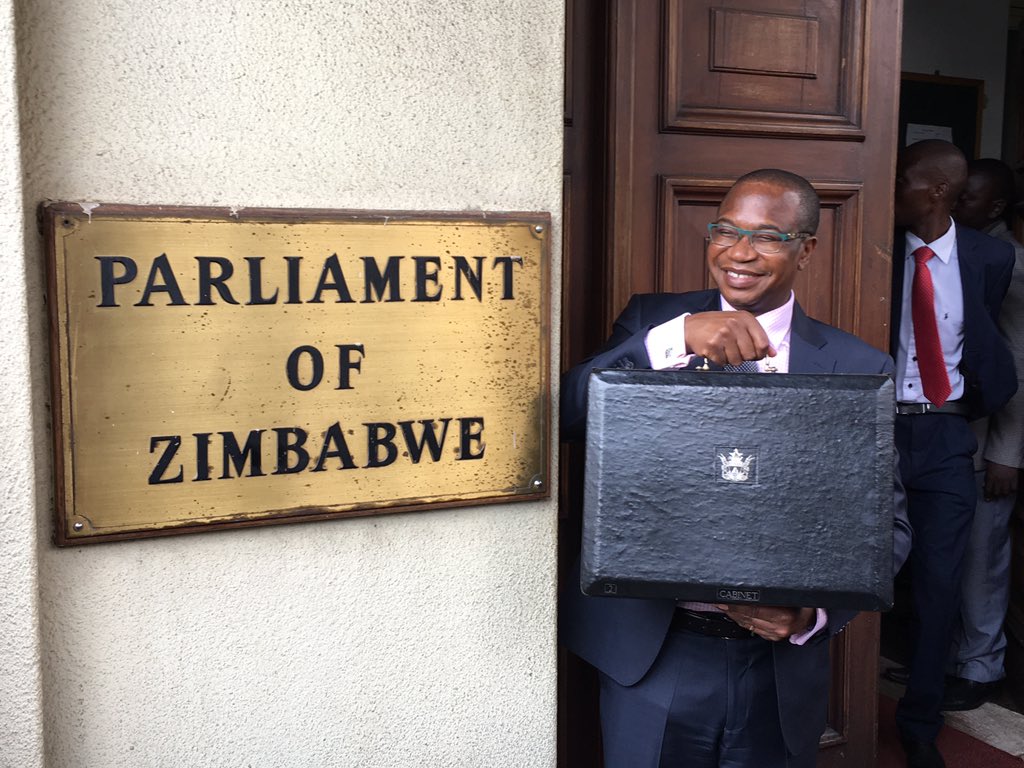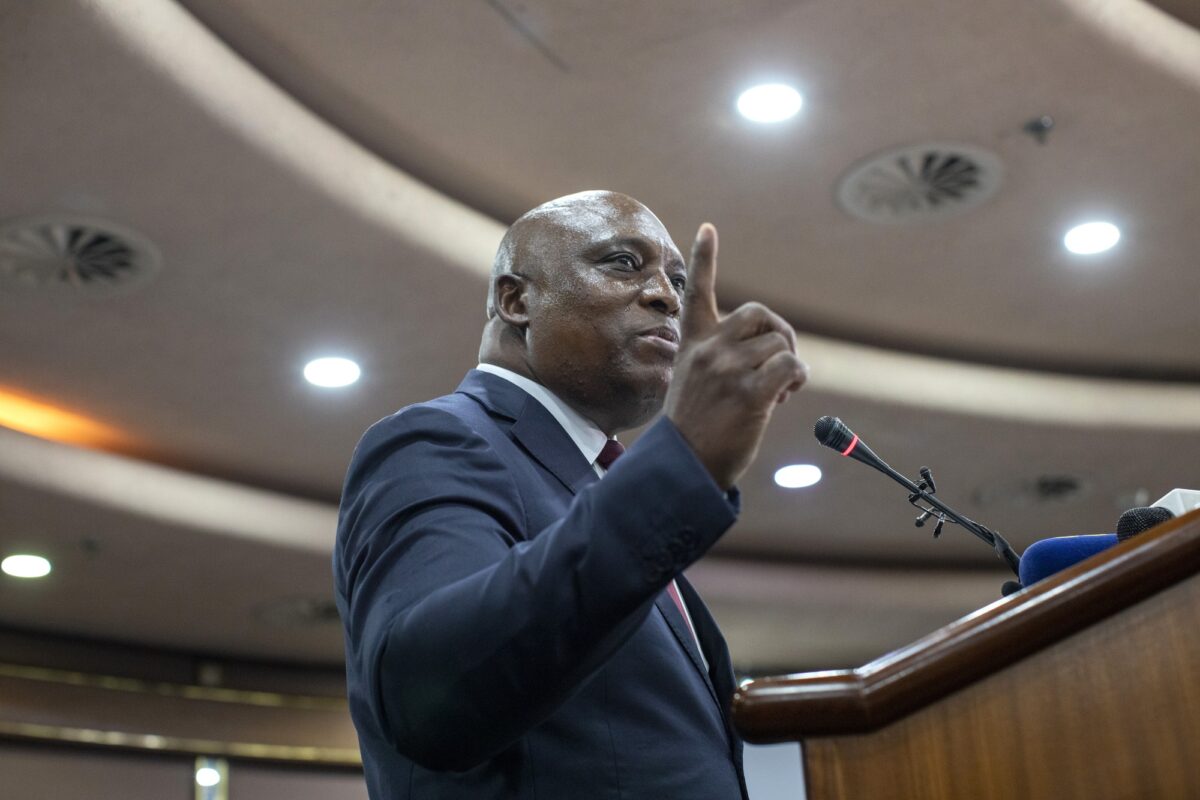HARARE – Demonetising the bond note is a “costly exercise”, Finance Minister Mthuli Ncube warned on Wednesday after coming under pressure from Members of Parliament who labelled his budget announced in November “fake” due to the prevailing currency imbalance.
During a debate on the 2019 budget, MPs tore into the government’s insistence that bond note or RTGS dollars were at par with the United States dollar. Ncube was forced to admit that there is a “premium” on top of the exchange rate, which was driving up inflation.
Kambuzuma MP Willias Madzimure (MDC) said they were “debating a fake budget” and Regai Tsunga (Mutasa South, MDC) said the government’s insistence that the bond note was equal to the US dollar was “unrealistic and untenable”.
Ncube admitted to the existence of a black market which he, however, insisted was “stabilising”, drawing derision from the National Assembly.
Former Finance Minister Tendai Biti (Harare East, MDC) got the ball rolling on Tuesday, assailing Ncube’s $8.5 billion budget as predicated on “fiction”.
“There’s a challenge relating to the budget’s failure to identify the exchange rate in which it is predicated upon. This is the failure of the budget to identify the currency in which it is expressed. To maintain the fiction of a US$1:1 bond makes this budget fail even before it has started,” Biti blasted.
“The reality out there is that we are existing in a period of serious structural exchange distortion. We are existing in a period of a multi-tier pricing system; there is a price in US dollars, bond notes, and RTGS. The growing exchange rate in the past two months has been a rate of US$1:3.50 bond. In other words, to purchase US$100 you require $350 of the local currency, whether it is bond notes or RTGS. So, we cannot run away from that reality.”
MPs warned that most of the budget allocations were three times less than what their paper value was, with prices of most goods having gone up threefold or more.
“I just wanted to tell the minister that personally I was very disappointed with the allocation for the Ministry of Health. Seven hundred million dollars allocated to the Ministry of Health today translates to about $200 million. That’s enough in hospitals for food and cleaning materials but no drug will be bought in that institution,” said Ruth Labode (MDC) on Wednesday.
Madzimure said the collapse in the value of the bond note, and the government’s insistence that it was equal to the US dollar had wiped off savings as well as leaving pensioners worse off.
“What’s going to happen to individual pensions, those people who have been contributing their pensions from 2009? We were doing so in hard currency, United States dollars, but if I’m to receive any pension today, it will be in RTGs, meaning that the price that I will meet when I go to buy the same provisions, the same basket that I used to fill with around US$30 will now cost me $90. It would have eroded the individual’s pension,” the MP said.
Ncube, who advocated the scrapping of the bond note just days before he was made minister in September, suggested it would be economic suicide to scrap the surrogate currency while the budget deficit and money supply remained high.
“If you consider those to be fundamentals of a currency which they are, just by dealing with fiscal discipline and the current account deficit, we are making sure that we strengthen the fundamentals of our monetary sector,” Ncube said in a pointed response to Biti.
“It’s therefore not surprising that in the market in which some of the people operate, the so-called parallel market, those rates have stabilised. The premium has stabilised.”
Temba Mliswa (Norton, Independent) interjected Ncube, saying he was “confirming there is a parallel market and yet you are telling us the US$ and bond are the same.”
Ncube admitted: “There’s a premium to our fixed exchange rate of one-to-one. Naturally, this premium does cause inflation.”
The minister’s admission, and not the first that the US dollar and the bond note are not equal, drew a sharp response from Mliswa, who accused him of “making price distortions” and being “the culprit for distortions.”
In raucous scenes, Biti chimed in: “The emperor is naked!”
Ncube, who famously said “the bond note will have to go sooner rather than later” just before being given the job by President Emmerson Mnangagwa, showed no appetite for following his earlier vow.
“There were comments on that we should demonitise the bond note. I want to be clear that it costs money – US dollars – to demonitise the bond note. There’s a figure that we’re aware of in terms of what it will cost, so, that figure will have to be sourced from elsewhere to demonitise it,” Ncube told MPs.
“Even if you want to replace it with the rand, which is a suggestion that I heard, it will cost you US dollars to change the bond note into the rand. I want to be very clear about that. It is a costly exercise and it would need to be budgeted for.”















